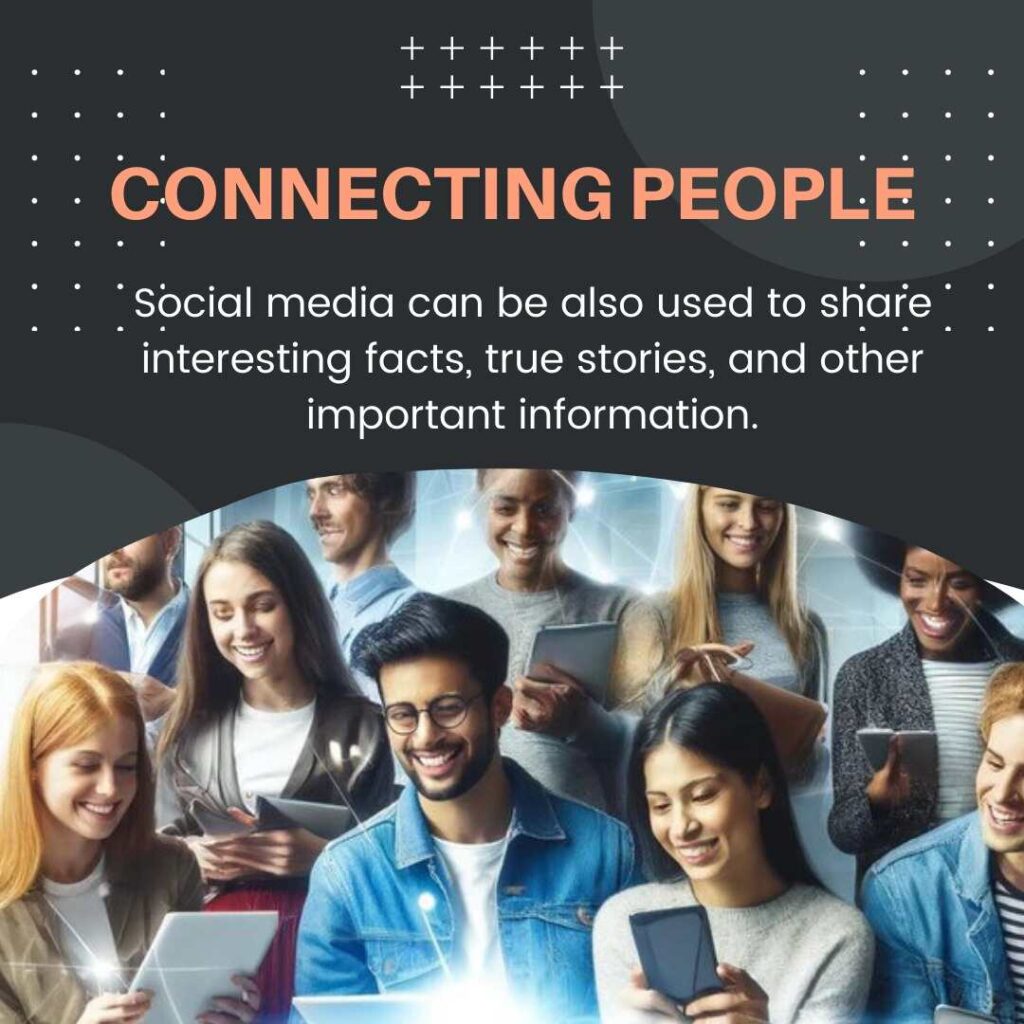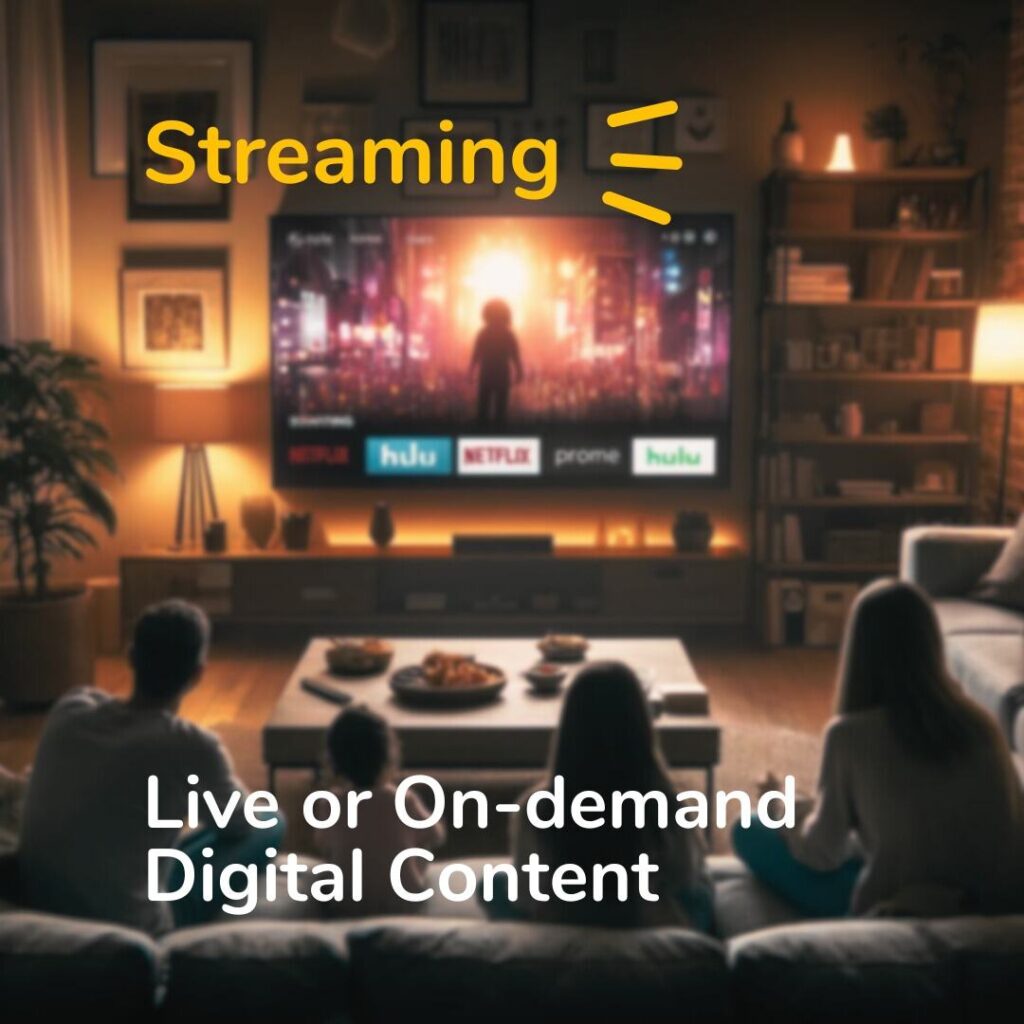The digital revolution has transformed our lives in countless ways. From the way we connect to the way we shop, a vast array of digital online service has become an undeniable part of our daily routines. But with so many options available, it can be easy to feel overwhelmed.
This blog aims to be your one-stop guide to understanding the exciting world of digital services.
What is digital online service?
In essence, digital online service is any tool or application accessible via the internet that provides a specific function. This encompasses a wide range of categories, including:
Communication:
Social media platforms like Facebook and WhatsApp, email services like Gmail, and video conferencing tools like Zoom all fall under communication services.

E-commerce:
From retail giants like Amazon to local online stores, e-commerce services allow you to shop for anything and everything from the comfort of your home.
Entertainment:
Streaming services like Netflix and Spotify provide on-demand access to movies, music, and TV shows.
Finance:
Online banking, mobile wallets, and investment platforms are all examples of digital financial services.
Cloud Storage:
Services like Google Drive or Dropbox allow you to store your data securely online, accessible from any device.
What are various digital media services offered online?
Digital media services are broadly divided into two categories: those that provide access to digital content and those that help create and manage digital media.
Here are some of the various digital media services offered online:
Subscription services:
These services provide access to a library of digital content, such as movies, TV shows, music, ebooks, and audiobooks, for a monthly or annual fee. Some popular examples include Netflix, Hulu, Spotify, Apple Music, and Kindle Unlimited.
Download services:
These services allow you to purchase and download digital content, such as movies, TV shows, music, and ebooks, to your own device. Some popular examples include iTunes, Google Play, and Amazon Prime Video.
Social media platforms:
These platforms allow you to share digital content, such as photos, videos, and text, with others. Some popular examples include Facebook, Instagram, Twitter, and Pinterest.
Content creation and management services:
These services help you create and manage your own digital media content. Some popular examples include Canva, Adobe Creative Suite, and WordPress.
Digital marketing services:
These services help businesses promote their products and services online. Some popular examples include search engine optimization (SEO), social media marketing, and email marketing.
Streaming services:
These services allow you to watch or listen to digital content live or on-demand over the internet. Some popular examples include YouTube, Twitch, and Vimeo.

The Advantages of Digital Online Service
Digital services offer a multitude of advantages that have revolutionized the way we live, work, and interact:
Convenience:
Access information, connect with loved ones, or shop for groceries – all at your fingertips, anytime, anywhere.
Cost-effectiveness:
Many online services are free or offer freemium models, making them accessible to a wider audience.
Selection:
The sheer variety of services available ensures you can find exactly what you need, from niche applications to comprehensive platforms.
Efficiency:
Online services streamline tasks and processes, saving you valuable time and effort.
Choosing the Right Digital Online Service
With so many options, selecting the right digital online service can feel difficult. Here are some tips to guide you:
Identify your needs:
What are you hoping to achieve with this service?
Research and compare:
Read reviews, explore features, and compare pricing plans before making a decision.
Security and Privacy:
Ensure the service has robust security measures in place to protect your data.
User-friendliness:
Consider the ease of use and whether the interface is intuitive.

Commonly Used Digital Marketing Services:
Sure, here is a brief introduction to each of the following:
SEO (Search Engine Optimization):
- The process of improving the ranking of a website on search engines like Google. The higher the ranking, the more likely people are to visit the website.
- SEO involves optimizing website content, structure, and backlinks to increase its visibility for relevant searches.
WordPress website designing:
- WordPress is a popular open-source content management system (CMS) used to create websites.
- It allows users to create and manage content, such as text, images, and videos, without needing to write any code.
- WordPress offers a wide range of themes and plugins that can be used to customize the look and functionality of a website.
Ebay store Management:
- Managing an eBay store involves listing products, processing orders, shipping items, and handling customer service inquiries.
- Sellers need to create eye-catching listings, set competitive prices, and track inventory levels.
- Effective communication with customers is also important for maintaining a positive seller reputation.
Shopify store Management:
- Shopify is a popular e-commerce platform that allows businesses to create online stores.
- It provides all the tools you need to set up and manage your store, including product listings, shopping carts, payment processing, and shipping.
- Similar to Ebay store management, keeping an eye on inventory, fulfilling orders, and providing customer service are all part of managing a Shopify store.
UX/UI design (User Experience/User Interface design):
- UX/UI design is the process of designing the user experience and interface for a product or service.
- UX design focuses on the usability and functionality of a product, while UI design focuses on the look and feel.
- UX/UI designers consider how users will interact with a product and create a positive and intuitive experience.
Email Marketing:
- A direct marketing channel where businesses send emails to a list of subscribers.
- It’s a cost-effective way to nurture leads, promote products, and build customer loyalty.
Web Programming:
- The art of creating websites and web applications using programming languages like HTML, CSS, and JavaScript.
- Web programmers build the structure and functionality of websites.
Search Engine Marketing (SEM):
- A broad strategy to increase website visibility in search engine results pages (SERPs).
- It can involve both paid advertising (Search Engine Advertising – SEA) and organic optimization (SEO).
Technical SEO:
- Optimizes the technical aspects of a website to improve its crawl-ability and indexing by search engines.
- · This includes things like website speed, mobile-friendliness, and structured data.
Graphic Designing:
- The art of creating visual content such as logos, illustrations, and infographics.
- Graphic designers use visual components to communicate ideas and information in an engaging way.
Product Marketing Strategies:
- Developing a plan to bring a product to market and position it for success.
- This includes defining the target audience, creating messaging, and developing launch campaigns.

The Future of Digital Services
The digital landscape is constantly evolving, with new and innovative services emerging all the time. As artificial intelligence and machine learning become more integrated, we can expect even more personalized and intelligent online experiences.
By understanding the vast potential of digital services, you can harness their power to enhance your life, streamline your tasks, and connect with the world around you in exciting new ways.
FAQs
What are digital marketing services?
Digital marketing services encompass a wide range of strategies used to promote a business or product online. This can include website design and development, search engine optimization (SEO), social media marketing, email marketing, pay-per-click (PPC) advertising, content marketing, and more.
What are the benefits of using digital marketing services?
There are numerous advantages to utilizing digital marketing services:
- Increased brand awareness and reach: Reach a wider audience online and establish your brand in the digital space.
- Targeted marketing: Tailor your campaigns to attract specific demographics and interests, maximizing your return on investment.
- Improved website traffic and lead generation: Attract more visitors to your website and convert them into potential customers.
- Cost-effectiveness: Digital marketing offers a wider reach compared to traditional methods, often at a lower cost.
- Measurable results: Track the performance of your campaigns and adjust strategies for better results.
- Increased brand authority and credibility: A strong online presence builds trust and establishes your brand as an industry leader.
How much do digital marketing services cost?
Costs for digital marketing services can vary greatly depending on the specific services you need, the size and experience of the agency (if you choose to hire one), and the overall scope of your campaign.
Some agencies offer hourly rates, project-based fees, or retainer packages. It’s important to discuss your budget and goals with a potential agency to get a clear idea of the costs involved.
What types of businesses can benefit from digital marketing services?
Practically any business, regardless of size or industry, can benefit from digital marketing. Whether you’re a local bakery or a global corporation, having a strong online presence is crucial in today’s digital age.
Do I need to hire a digital marketing agency, or can I do it myself?
You can certainly manage your own digital marketing efforts. There are many online resources and tools available to help you get started. However, for businesses lacking the time, expertise, or resources, hiring a digital marketing agency can be a wise investment.
An agency can provide a full range of services, manage your campaigns on an ongoing basis, and offer valuable expertise on the latest digital marketing trends.
What is SEO (Search Engine Optimization) and how can it help my business?
SEO refers to optimizing your website and online content to rank higher in search engine results pages (SERPs) for relevant keywords. This increases the organic visibility of your website and drives qualified traffic from potential customers searching for products or services like yours.
What is social media marketing and how can I use it to reach your target audience?
Social media marketing involves creating and sharing content on social media platforms like Facebook, Instagram, Twitter, etc., to connect with your target audience, build brand awareness, and promote your business. It’s a powerful tool for engagement, customer service, and driving traffic to your website.
What is email marketing and is it still an effective marketing tool?
Email marketing involves sending targeted emails to a list of subscribers to promote your products, services, or share valuable content. Despite the rise of social media, email marketing remains a highly effective way to nurture leads, drive sales, and build customer loyalty.
What is pay-per-click (PPC) advertising and how can it help me generate leads?
PPC advertising allows you to display targeted ads on search engines and other websites. You only pay when someone clicks on your ad, making it a cost-effective way to reach a highly relevant audience and generate qualified leads.
